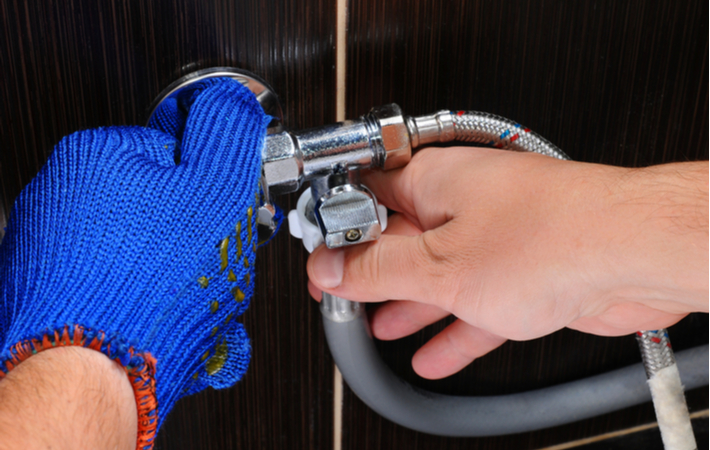There are several reasons a furnace might leak. From condensation to clogs, many things can lead to a puddle of water on your furnace room floor. To help determine the cause of your leak, and the steps you should take, you first need to decide which type of liquid is coming from your furnace.
What is Leaking from Your Furnace?
Fuel or Gas
If you suspect a gas leak in your home, evacuate immediately and call your gas provider and local fire department.
A fuel or gas leak is a serious problem. Gas leaks are often odourless, but if your furnace uses natural gas, you may notice a rotten egg or sulphur smell. Whether your home uses propane or natural gas, a leak can cause a fire hazard and cause adverse health effects. It needs to be addressed immediately.
Oil
Leaking oil is also a safety concern. If you see oil leaking from your furnace, use an oil absorber to clean up the spill before calling for a furnace repair. Kitty litter can work as a substitute for oil absorber in a pinch.
Water
Your furnace could be leaking water for many reasons. While it’s not an immediate safety concern like other types of leaks, a water leak could damage your home and furnace very quickly. To help determine the cause of the water leak, first determine what type of furnace you have.
What Type of Furnace Do You Have?
High-efficiency furnaces operate differently than standard furnaces, meaning the leak could have a different root cause (and a different fix).
High-Efficiency Furnaces
You can tell your furnace is high-efficiency if the exhaust pipe is made from PVC plastic or if there is an Energy Star sticker on the side. High-efficiency furnaces have cool exhaust and create condensation as part of the heating process. When your high-efficiency furnace is working properly, this condensation will drain through a hose.
If there is an issue with the condensate drain or hose, you will likely notice a leak. Without regular maintenance, the drain or hose can become clogged. Wear and tear over time can also create a hole or tear in the hose. Regular furnace maintenance can help prevent hose and drain issues, but if you do have a clog or leak, a furnace professional can clear the clog or repair the hose as needed.

Standard Furnaces
While standard to medium efficiency furnaces operate differently than high-efficiency furnaces, they can still have condensation issues. In standard furnaces, gases exit your furnace through an exhaust or flue pipe. When it is functioning normally, these gases will ventilate outside your home before condensation can form.
If your flue pipe isn’t the right size or isn’t at the right angle, condensation can form. As the condensation collects, it can pool, making it look like your furnace is leaking. An accumulation of condensation can be very damaging to your furnace and needs to be repaired as soon as possible.
Other Potential Causes
If one of the above issues isn’t the cause of your furnace leak, the culprit could be:
Air Conditioner Drain Issue
If your furnace shares a drain system with your air conditioner, an air conditioner drainage issue could be the root cause. If this is the case, the leak will appear worse when you run your air conditioner.
There could also be a clog in the drain system or hose, preventing water from draining properly. Eventually, this can cause the water to back up into your furnace, giving the impression that your furnace is leaking when you really have an air conditioner issue. An air conditioner drainage issue that has reached your furnace can cause serious damage and needs immediate repair.
Humidifier Clog
Many furnaces have built-in humidifiers to help make your home more comfortable during the winter months. They work by piping water into an evaporation pan, but if there is damage to the pipe or pan, they can begin to leak.
Condensation from the humidifier could be another potential culprit. Humidifiers use cold water, and when this cold water meets your warm furnace, condensation can occur. As the condensation collects, it can make it look like your furnace is leaking.
When to Call a Professional
A fuel leak is a cause for serious concern, and this emergency needs to be handled by your local gas authority immediately. On the other hand, a water leak does not pose the same immediate threat to your health, but if it isn’t repaired promptly, it can lead to costly furnace damage.
Ignoring a leak could also lead to much larger problems, so it’s best to call a professional if you ever see water coming from your furnace. Whether it’s time to replace a part or you simply need the slope of your flue adjusted, the furnace experts at Dunn Heating are here to help. for furnace repair backed by over 55 years of experience.








